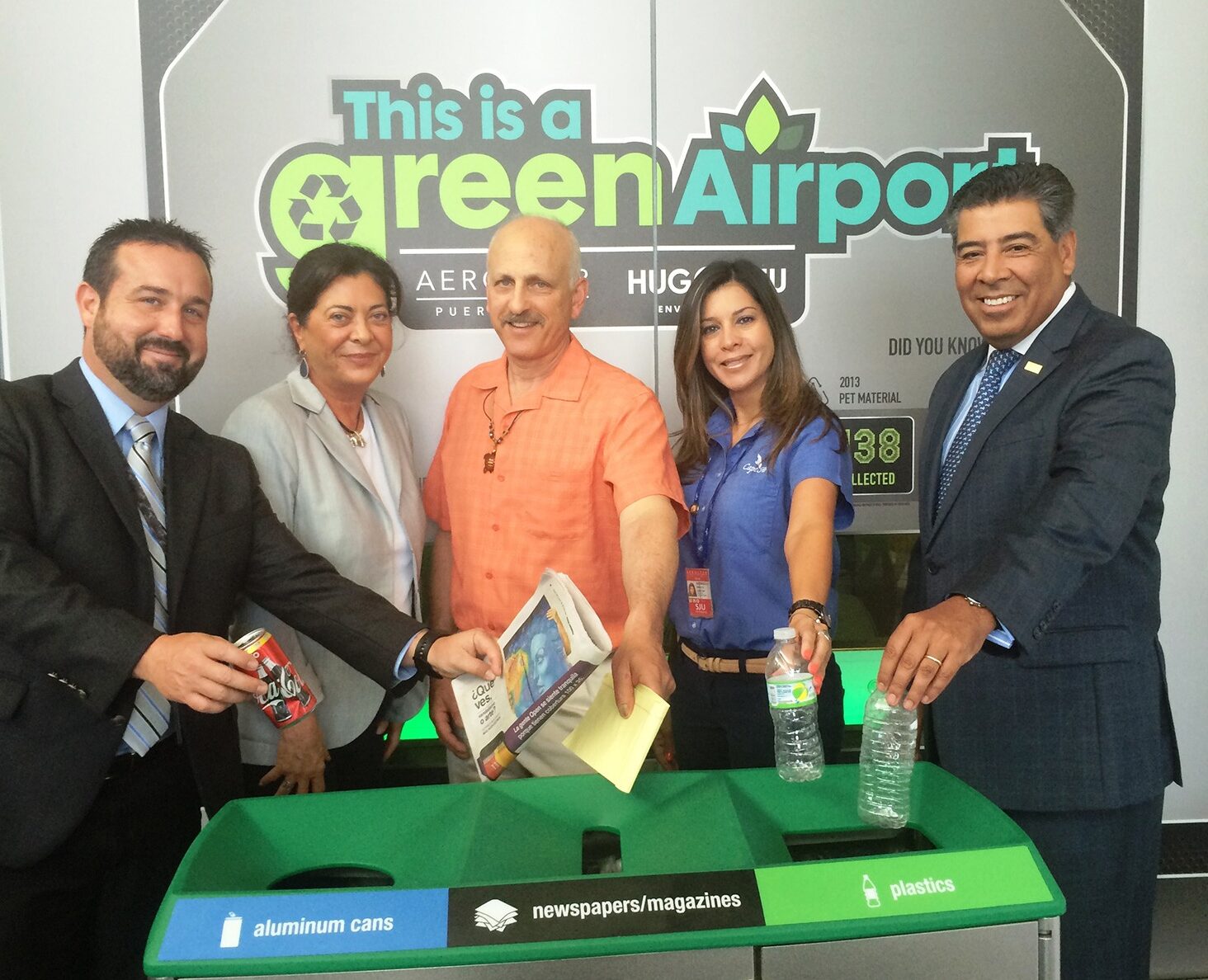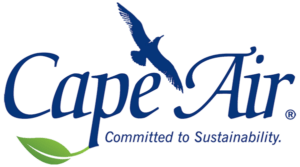Cape Air is an airline headquartered at Cape Cod Gateway Airport in Hyannis, Massachusetts providing scheduled services since 1989. Cape Air is one of the largest commuter airlines in the United States, with 75,000 annual flight hours operating scheduled passenger services to 37 locations throughout the Northeast, Caribbean, Midwest, and Eastern Montana. With an employee-owned and empowered workforce of 700+, the company’s culture is rooted in sustainability, growth, and innovation.
Cape Air’s commitment to sustainability is focused on mitigating climate risk and moving toward a lower carbon operation through energy conservation, efficiency, investments in new technologies, purchasing decisions, modernization of aviation technology, and creative partnerships. In 2009, Cape Air was one of the first airlines to adopt a strategic commitment to our planet’s environment, and in 2012 was awarded the Environmental Merit Award from the United States Environmental Protection Agency (EPA).
At its Massachusetts home-base, Cape Air has installed 3 solar PV systems, producing over 5 million kWh of clean electricity to become a net exporter to the grid. The adoption of LED lighting and high-efficiency equipment for heating and cooling has cut energy use at facilities system-wide by 40%. In its fleet aircraft, the company has installed digital fuel metering, which along with upgraded fuel injection and piloting procedures has cut fuel use by 4%.
Cape Air’s niche services, operating 9-seater commuter aircraft between outlying towns and major hubs, and the fact that most routes are under 200 nautical miles puts Cape Air in a unique position to be an early adopter of “Electric Aviation”. The company expects to eventually become a 100% carbon-free airline, utilizing electric propulsion and projecting that the aircraft batteries will be charged with clean, renewable energy. In 2016, Cape Air launched a partnership with Eviation to produce the first fully electric 9-seater commuter aircraft: the Eviation Alice. In April 2022, the organization signed a Letter of Intent to purchase 75 of the aircraft for its fleet when the type becomes certified for commercial flights. The maiden flight of Alice took place in September of 2022. (First Flight)
Cape Air has implemented several incentive programs for employees who wish to reduce their carbon footprints and save money. In addition to an Employee Home Solar Rebate, employees can benefit from an Employee EV Rebate incentive which provides $1,000 to those who purchase a new or used electric or plug-in hybrid vehicle. Cape Air was able to take advantage of the MassEVIP Workplace Charging program to pay for its charging stations and installation costs at Hyannis HQ. The charging stations are free and open to employees and have clearly accelerated employee adoption of EVs. Since introducing these incentives for EVs in summer of 2019 (when no employee drove an EV to work), the number grew to 20 by the end of 2021!
Cape Air is also very involved within the greater Cape Cod and Islands community, and has worked with local, state, and federal government programs to bring the first electric cars and charging infrastructure to Nantucket. In 2019, the Hyannis Gateway Airport joined Cape Air and the Cape Cod Climate Collaborative to host and sponsor the first-ever Cape Cod Electric Car Show, where the public and many employees attended, test-drove, and learned from dealers and current EV owners. Looking forward to 2023, Cape Air would like to purchase more electric fleet vehicles, as well as increase the number of employees with EVs.
“Cape Air has never been just another airline. We are a company of firsts, and one with a deep sense of social responsibility. We see tremendous opportunities to reduce the environmental impact of our operations, and to help our employees and communities do that as well.”
– Dan Wolf, Cape Air Founder & Board Chairman


